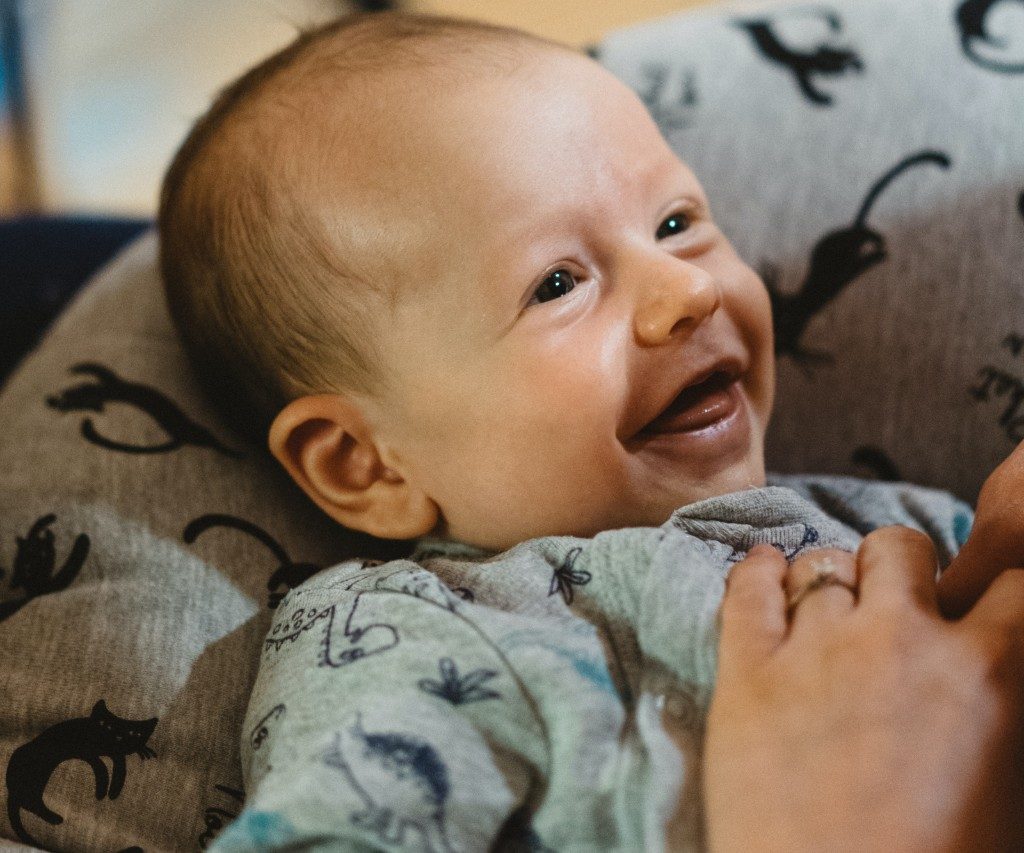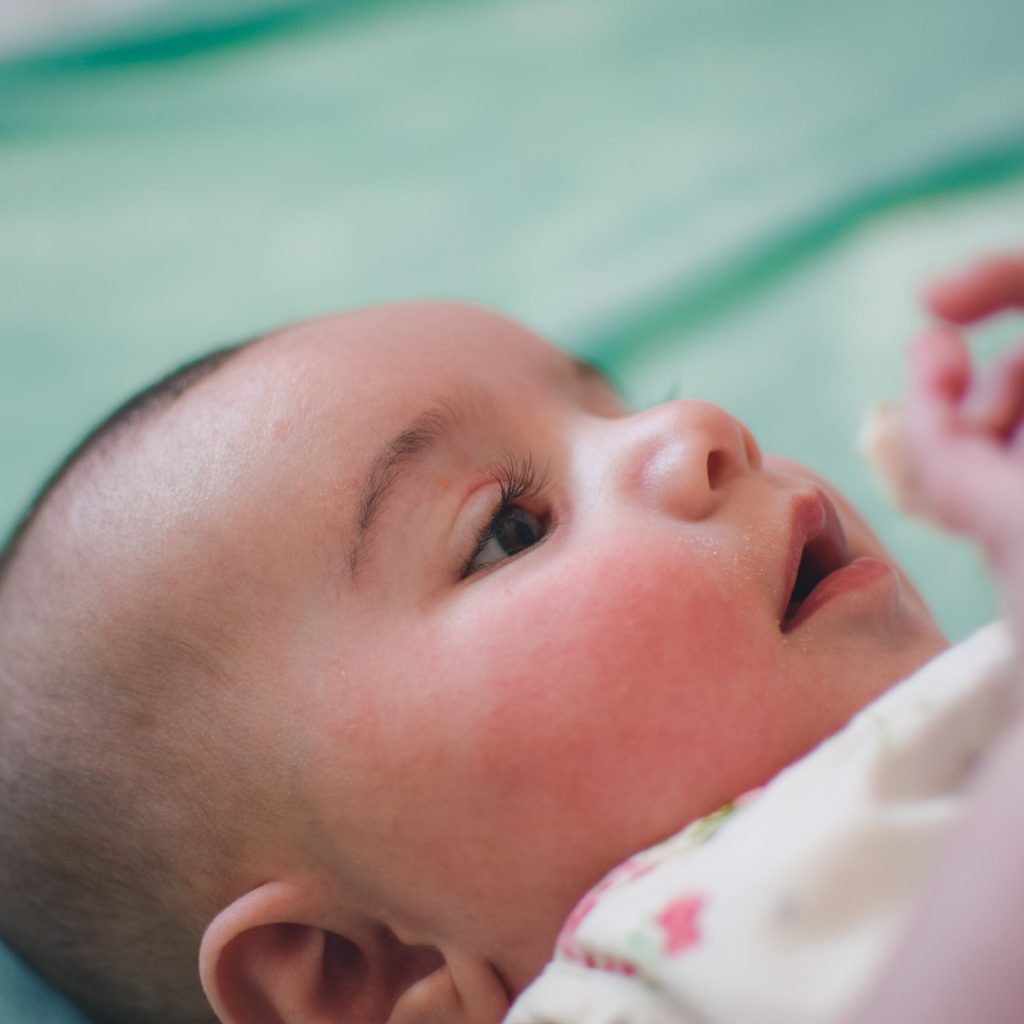Are you the proud parent of an infant and curious to know when you get to hear their sweet voice for the first time? While the exact age varies, but babies generally say their first word around their first birthday. That doesn’t mean they aren’t learning about language before then, though. Keep reading to find out about baby babbling, word, and sentence forming milestones, and when to be worried if your child doesn’t make them.

The earliest language learning
Babies can hear talking while in utero, and they are actively learning about language while doing so. In fact, by the time they are born, babies can differentiate their mother’s voice from that of other people. Furthermore, if a mom reads a book to her baby in the womb, the baby will prefer to hear that book read to them once they’re born. From the time they are born, babies will learn to imitate the sounds spoken to them.
Cooing and babbling
Aside from recognizing a baby’s different cries (when they are hungry versus when they are tired, for example), you will find that around 1 month of age, babies begin to coo. Cooing is the vocalization of simple sounds, often vowels. This is their first non-crying form of communication!
By the time they are around 6 months old, their coos will progress to babbles. Babbling sounds are those that have a consonant paired with a vowel sound, like ba or ma. Babies typically babble in strings, making sounds like ma-ma-ma. While it might sound like your child is saying mama, they probably haven’t made the connection between that word and its meaning.
Instead, they are simply making some of the easiest consonant sounds to form. These include sounds made with just the lips, like b, m, and p, as well as sounds made with the tongue on the roof of the mouth, such as d and t. Also around the age that babbling begins, babies are really beginning to understand spoken language. They can also understand sign language by this age. Hearing babies who are taught sign language usually start to sign when they are between 6 and 8 months old. Teaching your baby basic sign language is a great way to communicate with them before they can talk!
First words
At approximately 9 months, your baby will begin combining different consonant-vowel pairs to make words like ba-ma or da-pa. They understand even more language by then, too. However, they lack the motor skills necessary to form whole words. It requires more than just cognitive ability to retrieve and vocalize words, after all.
Around 1 year of age, babies typically say their first word. This word is usually mama or dada, and will likely melt your heart! Their speech becomes clearer around 18 months, and by the time they are 2 years old, they might be able to form a few simple sentences.
When to be worried
Remember, the ages cited above are just averages — not absolutes. The actual age at which your child babbles, says their first word, and begins using sentences will vary and is unique to each individual. Your child will seemingly not understand speech one day and the next day utter their first word. So don’t get too anxious if at 1 year old, your baby hasn’t said their first word. Your child should begin forming words by 12 months, though, and if not you should speak to your pediatrician. Also of some concern is if your 24-month-old doesn’t understand about 50 words or doesn’t say around 10 words. Otherwise, don’t sweat it! Your child will speak when they are ready.
If your child is missing his or her speech milestones, there are a few steps doctors will take to find out why. Although babies are screened for hearing at birth, they may have developed hearing loss since — which would explain why they don’t understand spoken language. A hearing screening may be done on your child again if they aren’t meeting speech milestones. A speech-language pathologist may conduct a speech evaluation and determine that your child needs speech therapy. Finally, developmental evaluations that look at all of your child’s milestones, not just those related to language, are typically done at regular doctor’s appointments and may indicate a developmental issue that is responsible for speech delays.
Of course, you’re excited to hear your child speak for the first time, which is why you’re looking for the best ways to teach babies how to talk. But don’t try to rush it. Such an attempt would likely be futile anyway! Instead, make sure you read, sing, and talk to your child in a normal and clear voice frequently from an early age to best expose them to language. This is the best way for babies to learn language, which humans innately do.





